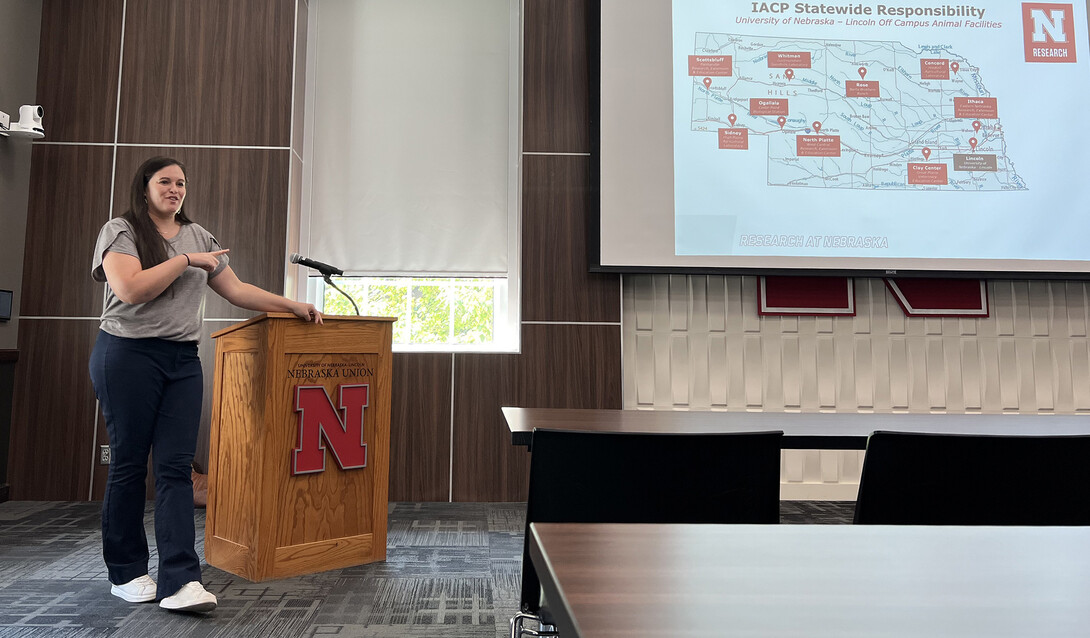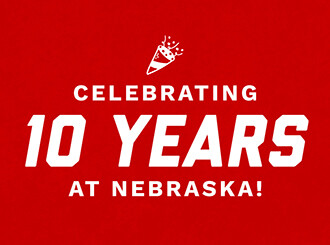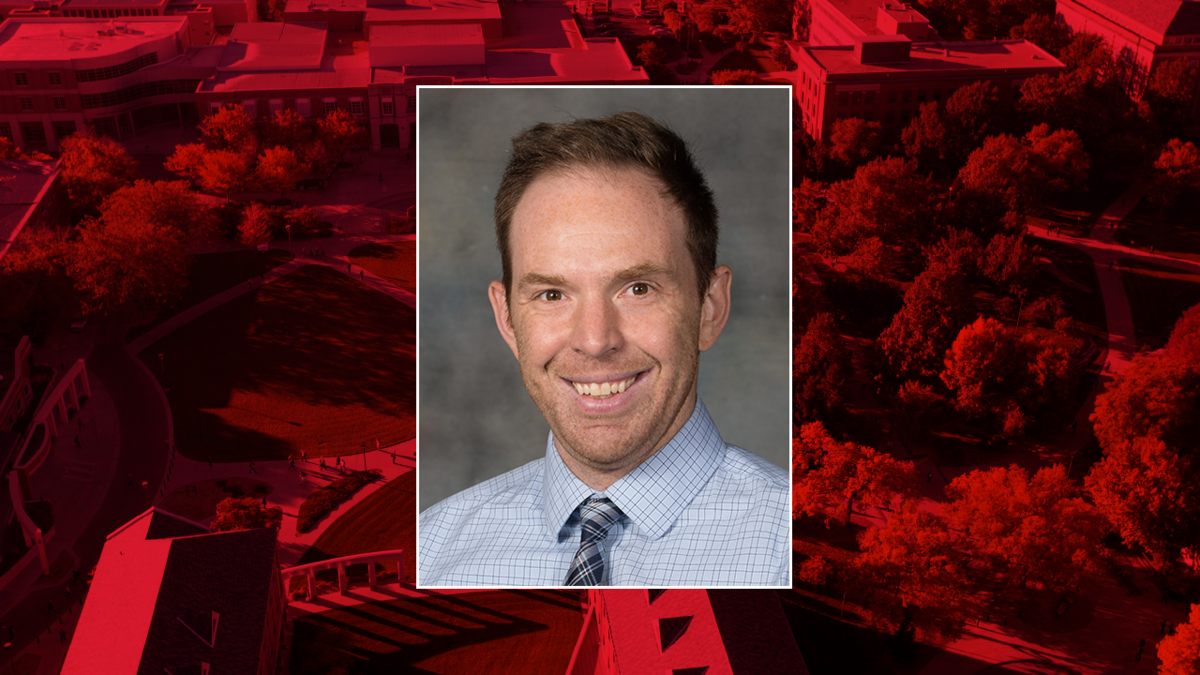
As the state’s only land-grant university, the University of Nebraska–Lincoln leads the way in research to elevate Nebraska’s agricultural production — including livestock.
That research — and much more, including wildlife conservation, gnotobiotic mice and canine cognition — is made possible through the work done behind the scenes by Megan Ebbers, assistant director of the Animal Care Program in the Office of Research and Innovation.

Ebbers, who is also a Husker alumna, is celebrating 10 years of service to the university during the Celebration of Service Sept. 6.
In her role, Ebbers helps researchers follow all laws and regulations related to animal care and welfare in research. That means keeping up with the latest changes to various regulations.
“There’s laws, along with guidance documents, and I’ve read them front to back,” she said. “I also attend seminars regularly to learn about any changes that may be happening.”
She works alongside a team of veterinarians in the Animal Care Program to oversee 11 animal research sites, keeping the facilities and animal health at an optimal level. She also organizes the Institutional Animal Care and Use Committee, which oversees all aspects of animal use in research and teaching including protocol review and approval, animal facilities inspections and personnel training. She leads the trainings each semester for all researchers who work with animals — from undergraduates to senior faculty. She also often accompanies officials from three oversight agencies for inspections. Most recently, she took officials through the new Klosterman Feedlot Innovation Center, which will bring cattle in this fall.
And every three years, she heads up efforts to gain reaccreditation from the Association for Assessment and Accreditation of Laboratory Animal Care, which is essentially the gold standard for research facilities.
No day is like another, she said, but she enjoys the varied responsibilities she has and seeing the progress and successes of the important research happening on campus.
“We really focus on good customer service and getting protocols approved in a timely fashion,” Ebbers said. “We want our researchers to know that this is a good place to go, to bounce off ideas and just to help them in any way we can, whether that's equipment, technologies or different services that our technicians can provide.
“Seeing people succeed, having research published, helping graduate students get their studies going and understand the process — those are all things I really enjoy about my job.”
Growing up on a corn and soybean farm outside Decatur, Nebraska, Ebbers was more attuned to crop production and came to Nebraska as an ag communications major, but she quickly fell in love with the field of animal science.
“I really enjoyed the animal production and companion animal classes I took and decided I wanted to be in the animal science industry,” Ebbers said. “After working in a veterinary office in college as a kennel staff worker and receptionist, I also realized being a veterinarian was not for me. So I decided to take a different route.”
After graduation, Ebbers worked for a year in a university research service center as an animal care technician.
“I did everything from daily animal husbandry, sample collection, record keeping and cage wash,” she said. “But I wanted more of a challenge.”
Ebbers worked for two years as a lead adoption counselor for the Capital Humane Society, where she helped open the Pieloch Pet Adoption Center in 2013. She enjoyed the work but was also starting a family.
“There were a lot of weekends and evenings when I wasn’t home, and that’s how I ended up back at the university in this role,” Ebbers said.
And what keeps her here?
“It’s the people,” she said. “There are really good people here, and there’s always something new. I’m never bored. Our office has a good culture and I look forward to coming to work.”







